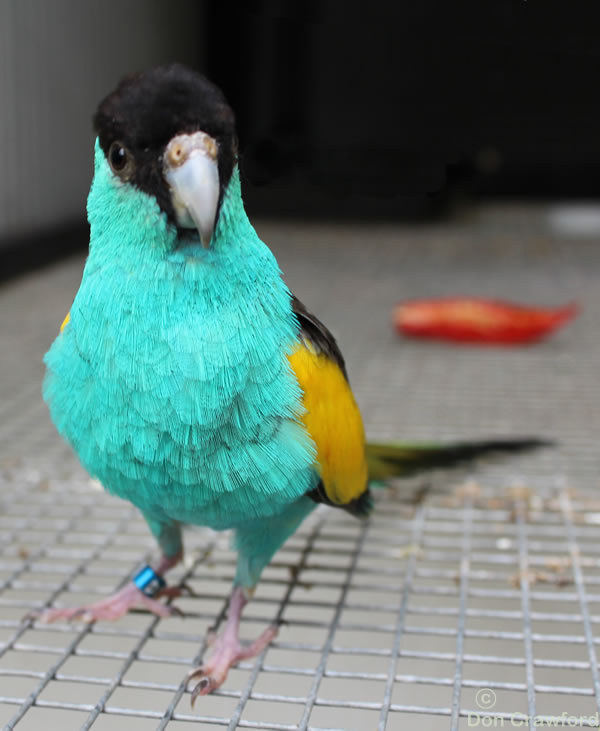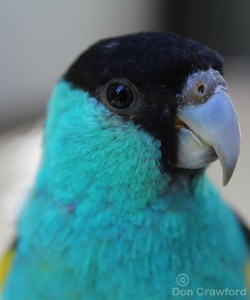
(Psephotus Dissimilis)
Natural Habitat
The Hooded Parrot’s natural habitat is the Northern Territory. They can be found where they have access to waterholes, treed areas, also grasslands that have an abundance of termite mounds for them to breed in. They feed on any small seed and when that is not available, they will then feed from small plants and flowers. They fly mainly in pairs, but in the breeding season can be seen flying with their young in small family groups.
Breeding
When breeding they lay between four to six white eggs. Some eggs are oval and others are round like a marble. Their status is listed as ‘concerned’.
Because they nest in a termite mound it shows what an intelligent bird they are. They actually dig deep into the termite mound making their nest somewhere near the middle where the temperature has a more constant warmth (approx 30° C ). This allows the parents to leave the nest for longer periods whilst searching for food to feed the young.

Because of this unusual environment created by the parents, the young are more content – grow quicker because they are fed better – which ultimately leads to young that are quite strong flyers when they fledge, giving them every chance of survival.
Heated Nest Boxes?
This may suggest that to try and breed these birds without a heated nest boxes would be futile. Caution should be advised, as a heated nest that is too hot may create just as big a problem as having no heat at all. Over the years quite a few young hoodeds and particularly Golden Shouldered parrots (Psephotus Chrysopterygius ) have been lost, due to the stress caused by the nest box being too hot. HEAT STRESS can kill!
Also if you have a nest of four or more young, the nest should be monitored daily for any signs of heat stress, as well-fed young do create their own heat all cuddled up together. As the young birds grow, we reduce the heat as required. You don’t want young fledglings leaving a warm nest and going into a not-so-hot environment. Once feathered they won’t need heat at all.
You can also Contact Don to register your interest in buying birds as they become available.
Back to Top
Home